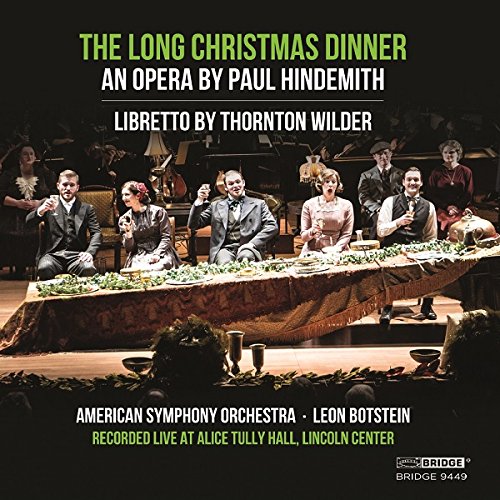Relatively recent tweaks to the abundant London concert scene have resulted in top-end events right up to Christmas. We have in part to thank the seasonal festival at St John’s Smith Square, postponing the Orchestra of the Age of Enlightenment’s holidays, putting them together with superb soloists and choirs, and serving up major Handel and Bach. One snag: their Christmas Oratorio when I last went to hear it turned out to be only four cantatas out of the sequence of six.

L'Arpeggiata seem to revel in being L'Anachronista. The baroque-jazz group led by the Graz-born theorbo player Christina Pluhar has been proudly and brazenly flouting the dictates of those who set the rules of Historically Informed Performance (HIP) for all 15 years of their existence.

Is it possible for a carol concert to have a cult following? Ex Cathedra's annual Christmas Music by Candlelight performances in St Paul’s Church have quietly grown into a Birmingham institution. The audience has evolved its own rituals: camping out through the long interval in the box pews, and sharing improvised picnics of mulled wine and mince pies.

Imagine knowing Hamlet as a four-act play, or The Ambassadors without its bottom third. Imagine Mozart’s Requiem as a torso that halts eight bars into the Lacrymosa, or Mahler’s Tenth as the lone Adagio (as, indeed it too often appears). We might admire them all the more for what we ached to feel whole as their creators intended.

It’s boasting, but surely true, to claim that London offers the biggest number of classy Christmas concerts in the world. How could it be otherwise with established seasonal festivals based around Spitalfields, St John’s Smith Square and the over-restored but still amazing Temple Church whose founder Knights Templar bring Dan Brown fans in droves and an inevitable daily admission fee of a fiver?

 Hindemith: The Long Christmas Dinner American Symphony Orchestra/Leon Botstein (Bridge)
Hindemith: The Long Christmas Dinner American Symphony Orchestra/Leon Botstein (Bridge)

Bernd Alois Zimmermann’s Nobody knows de trouble I see is a popular concerto, but it’s an unlikely hit. Zimmermann maintains a distanced relationship with the spiritual on which the work is based, and, while there are jazz elements too, this is a long way from crossover. Zimmermann maintains his modernist/serialist perspective throughout, and all the jazz ideas – the trombone glissandos, the sax section replacing the French horns, the vaguely improvisatory trumpet writing – are configured within a strict and austere single-movement structure.

The few ensemble lapses and moments of insecurity during the first half of this concert had nothing to do with Richard Farnes’s conducting, or with the playing of an augmented Orchestra of Opera North. It’s in rude health; Farnes has refined and deepened the orchestra’s string sound, and the winds and brass are world-class.

Last night’s Wigmore Hall recital by countertenor Iestyn Davies and tenor Allan Clayton, accompanied by James Baillieu, was an all-round triumph: brilliantly programmed, superbly sung and very thought-provoking. Mixing solo items with duos, the programme encompassed Purcell, Britten, Adès, Barber and the young American composer Nico Muhly. If it had been a competition – which it wasn’t – Britten would have been the champion. But he was also responsible for the most troubling of the pieces.

Why play a very substantial act of ballet music in concert? In the case of Aurora’s wedding entertainment from Tchaikovsky’s The Sleeping Beauty, there are at least three good reasons. It embraces the most inventive and unorthodox of divertissements in any ballet – the one in The Nutcracker comes a close second – and a symphony orchestra deserves the chance to perform at least a substantial chunk of what Stravinsky called Tchaikovsky’s chef d’oeuvre.

